Racism in the USA has been a prevalent issue since the colonial era when slavery became a widespread issue all across the newly-colonized areas. Although it’s been years since slavery was abolished and the Civil Rights Act was signed, the horrible shadow of the past still looms over the modern day America.
Back in 2010, a social justice think tank The African American Policy Forum (AAPF) commissioned Erica Pinto to make a short film titled The Unequal Opportunity Race that focused on the issues people of color face and which affirmative action tries to alleviate. Although it’s been almost a decade since the video was originally posted, it’s been making rounds on social media sites again, where people had a lot to say about it.
The short film depicts a foot race with two white and two black runners. Although the first few seconds seem to show a regular sports event, things start to change the moment the race starts. As the two white runners dash forward, the black runners are stopped by a red light, with a board behind them showing “1493”. The numbers refer to the very start of colonialism when Christopher Columbus discovered the Americas. It was the beginning of hundreds of years of abuse, exploitation, and prejudice.
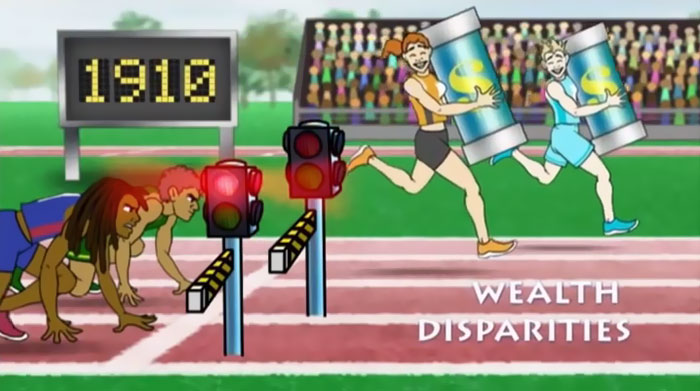
As the white runners make their way through the race, the black runners are still waiting for the red lights to go green, with numbers changing, indicating the passage of time when their people were essentially powerless against the colonial machine. Terms like “slavery”, “broken treaties”, “genocide”, and “manifest destiny” flash on the screen, reflecting the shameful moments of North American history. The video also mentions Dred Scott, a reference to a famous case where an enslaved man tried to win his freedom through court. In a 7–2 decision, the court denied Scott’s request, stating that “a negro, whose ancestors were imported into [the U.S.], and sold as slaves, whether enslaved or free, could not be an American citizen, and therefore had no standing to sue in federal court”.
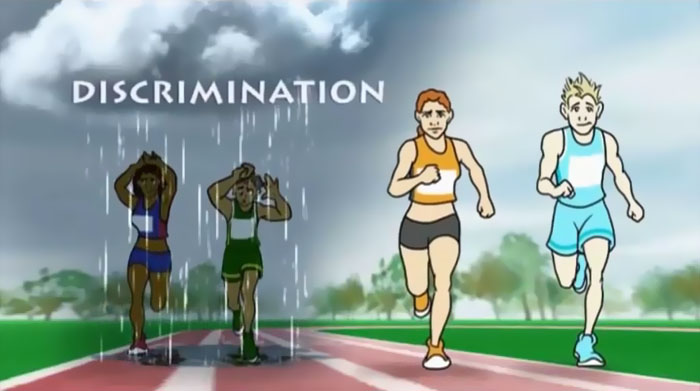
But the prejudice and oppression spread outside of colonialism and slavery. One of the USA history moments mentioned in the video is the internment of Japanese Americans. During WWII, after Imperial Japan’s attack on Pearl Harbor, then-President Franklin D. Roosevelt ordered the forced relocation and incarceration in concentration camps of between 110,000 and 120,000 people of Japanese ancestry. Over half of them were United States citizens. While some would argue that such actions were taken for security measures, it’s been widely accepted that such policy was the result of racism.
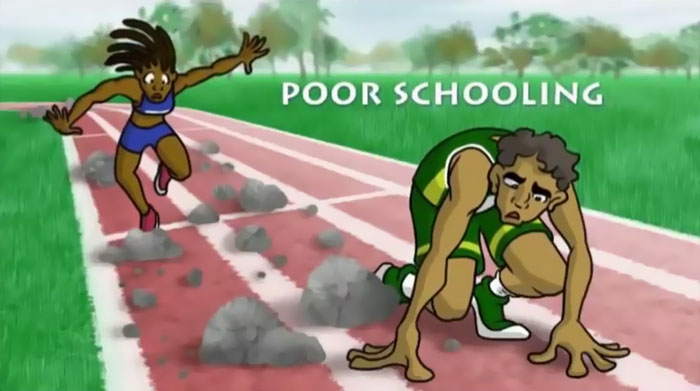
The video continues, showing how one of the white runners accumulated wealth through the year and passes it off to future generations, meanwhile, the runners left behind are waiting for their start. This highlights the wealth disparities between different races. According to data from the U.S. Census Bureau, black wealth is about 7 percent that of whites, as of 2014. This is one of the most impactful issues in the USA, despite the white population severely underestimating it, as a 2018 survey shows that whites think that black wealth is around 80 percent that of theirs.
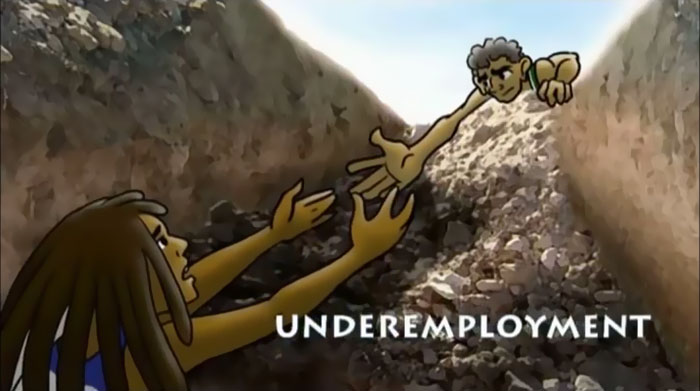
The runners left behind finally start the race as the numbers behind them reach 1964. This refers to The Civil Rights Act of 1964, when discrimination based on race, color, religion, sex, or national origin was finally outlawed. Although it was a historical landmark for the civil rights movement, it wasn’t a law that ended racial prejudice, and that is something the following parts of the short film focus on.
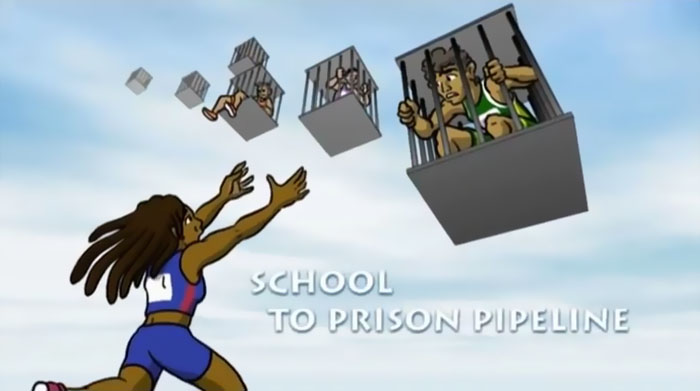
As the people of color try to catch up with the white runners, they face a number of obstacles that ultimately eliminate them from the race completely. Discrimination, poor schooling, underemployment, and racial profiling are just some of the hurdles the runners face, a reflection of what the American population has to overcome.
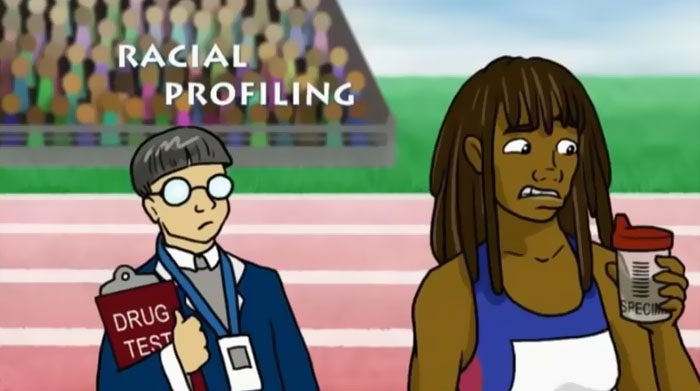
However, racial prejudice is not the only focus of the video. At the end, when the white man is shown winning the race with the help of white privilege and connections, the runner-up also has to face unequal race. This, perhaps, could be seen as an example of sexism that is just another issue in the current socio-political climate of the USA.
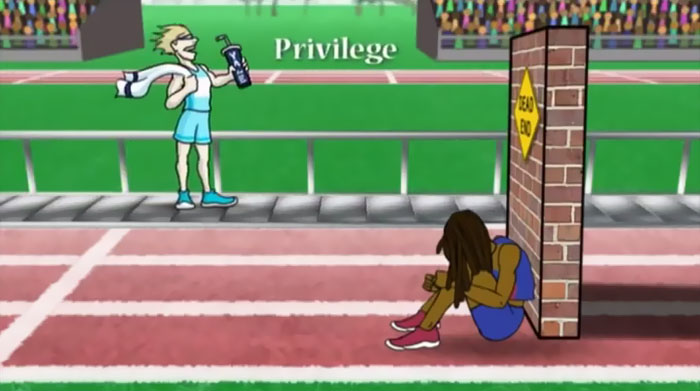
As with all social commentary, it’s small wonder that the Unequal Opportunity Race race video sparked a debate with varying opinions online. Some defended the video and the issues it tries to address, while others criticized it for promoting “white guilt”. As of February 27, 2019, the video has 6.2k upvotes and 10k downvotes on YouTube, indicating polarized opinions about it.
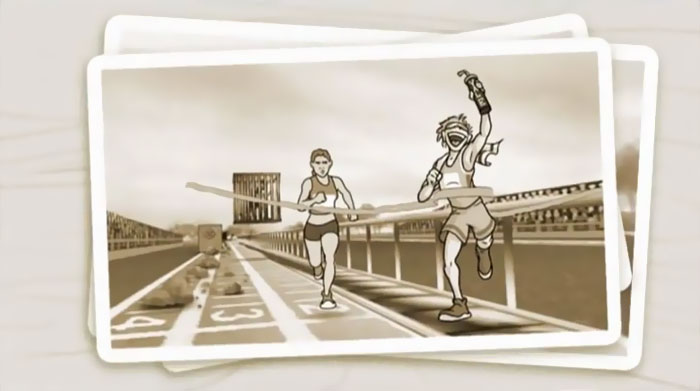
Some people on YouTube were criticizing the video
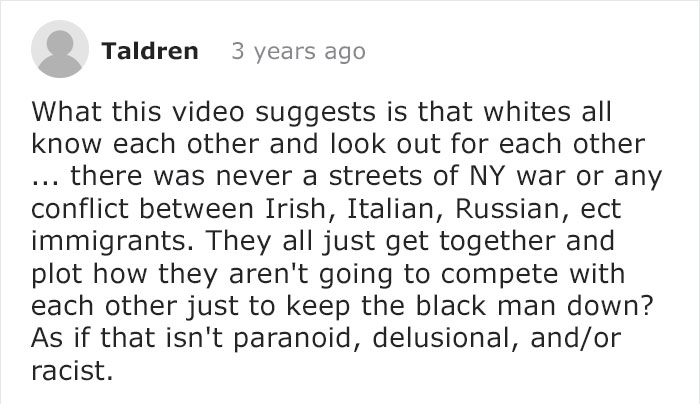
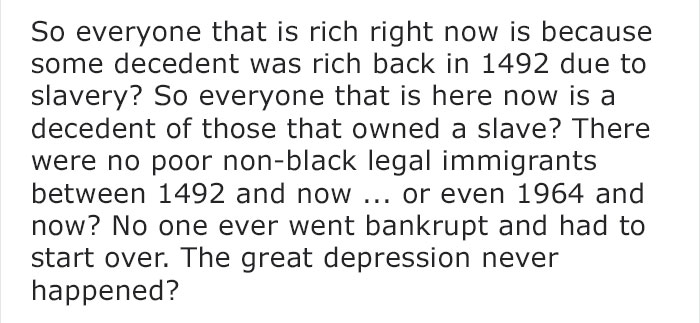
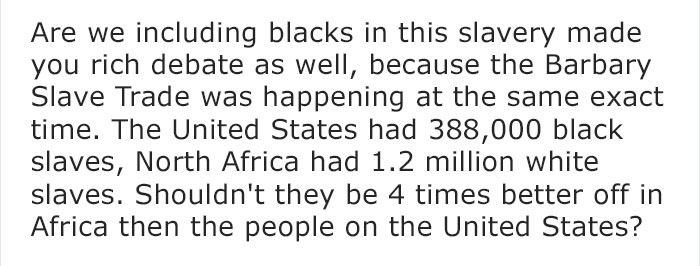

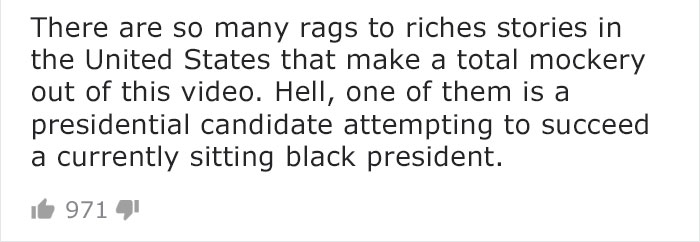
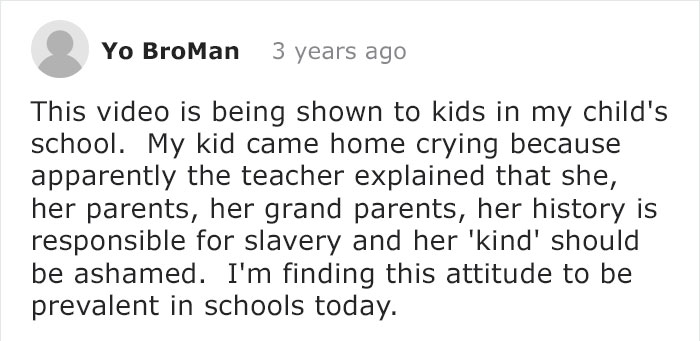

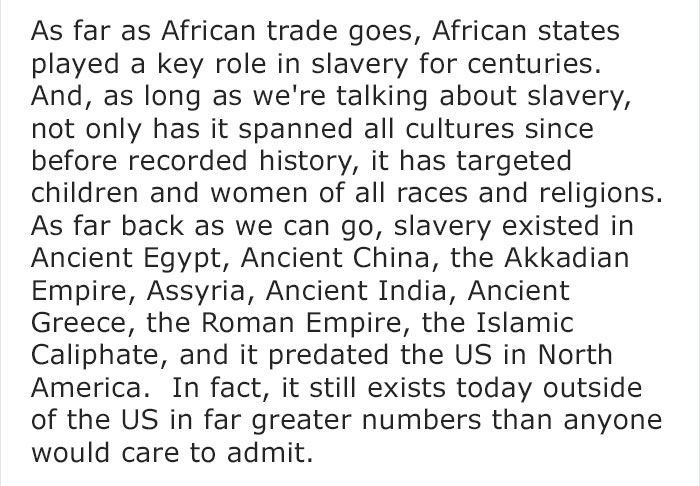
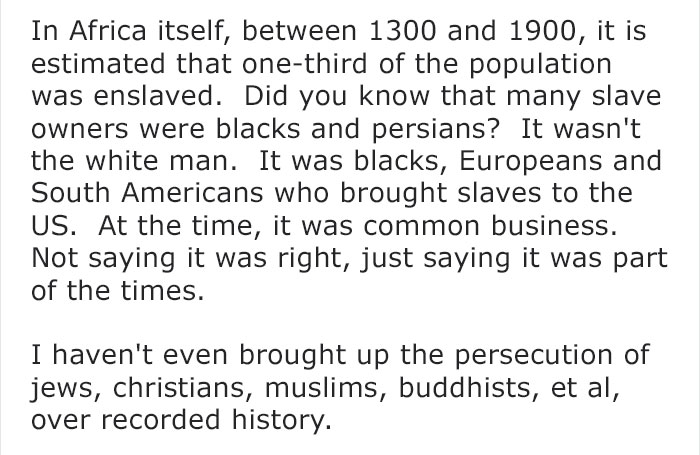
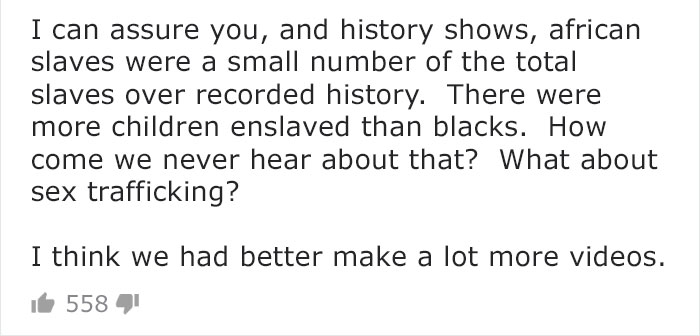

However, there were others who defended it as well
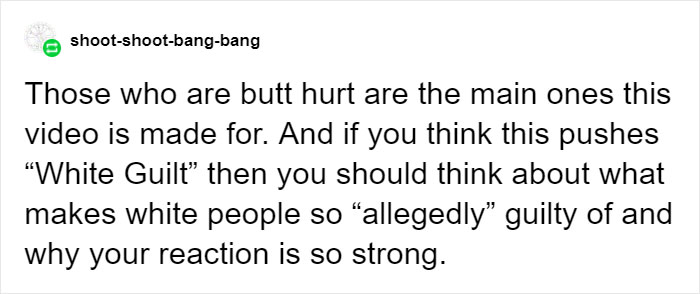
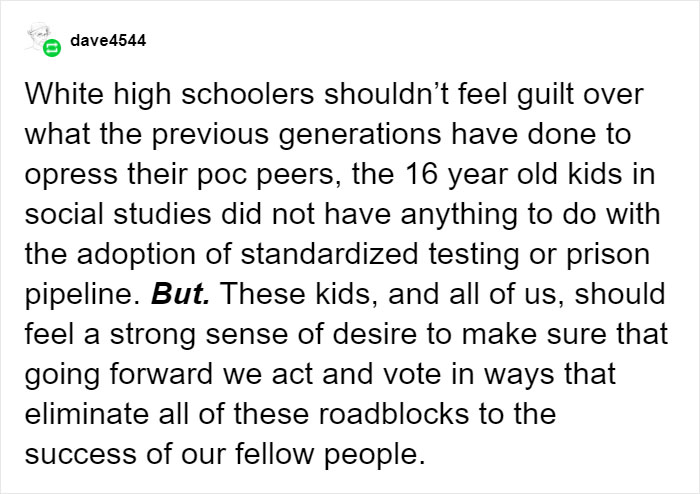
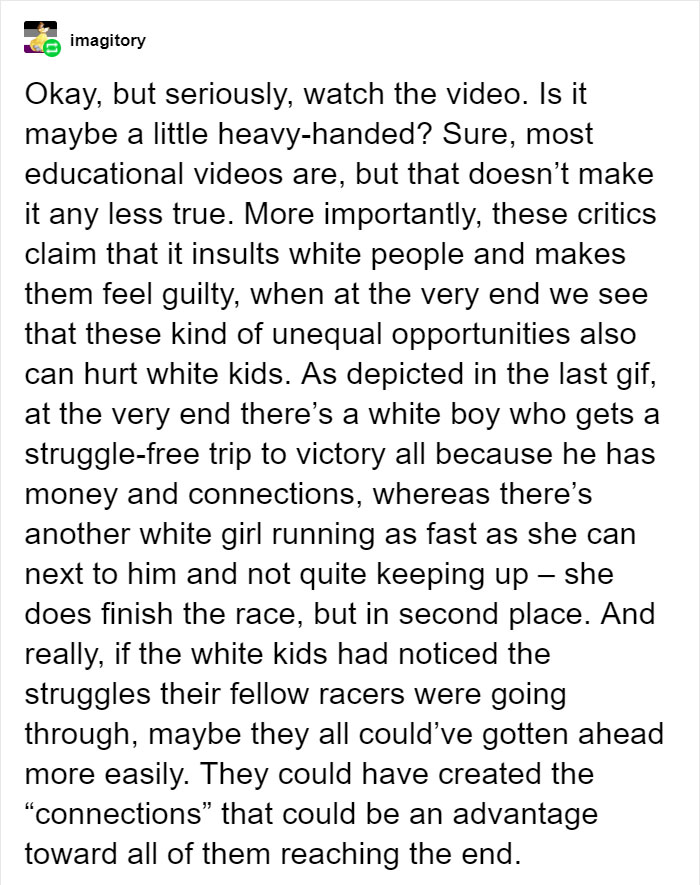
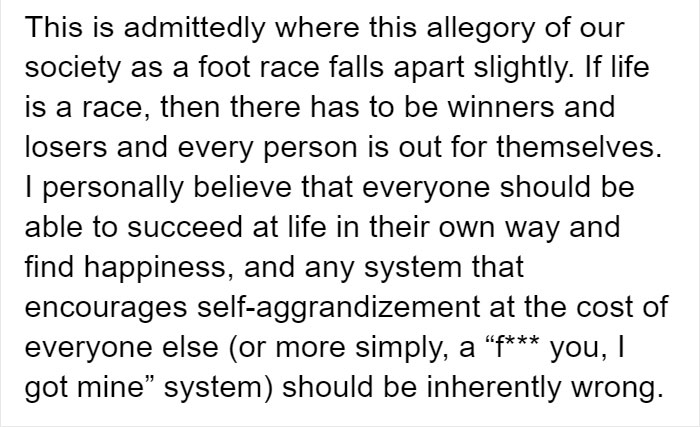
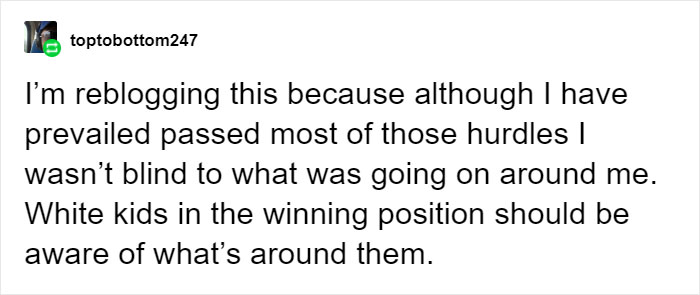


0 Yorumlar